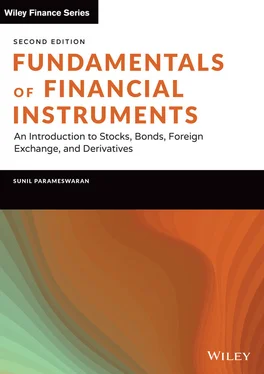1 ...7 8 9 11 12 13 ...36 The start-up costs of a sole proprietorship are usually lower than those of other forms of business. Unlike a corporation, however, such businesses face relative difficulties in raising additional capital when they choose to expand the scope of their operations. Usually, in addition to the owner's personal investment, the only source of funds is a loan from a commercial bank.
Legally, the proprietorship is an extension of the owner. The owner is permitted to employ other people. The net profits from the business are clubbed with the proprietor's other income, if any, for the purpose of taxation. The lifespan of these entities is uncertain. For instance, if the owner were to die, the business would cease to exist.
Partnerships:A partnership is a business entity that is owned by at least two people or partners. One of the partners may be a corporation, which we will explain next. Legally, the partnership is an extension of the partners. Like a proprietorship, a partnership is permitted to employ others, and can conduct a business under a trade name. For instance, two lawyers named John Smith and Mike Jones may conduct their business as Smith & Jones, or else under a trade name such as “Legal Point.” In a general partnership the partners have unlimited liability, and the partners are personally responsible not only for their own acts, but also for the actions of other partners and employees.
There are two categories of partnerships in many countries: general partnerships and limited partnerships . A general partnership is what we have just discussed. In a limited partnership there are two categories of partners: general partners and limited partners. The general partners are usually a corporation and have management control. They are characterized by unlimited liability. The limited partners, on the other hand, are like the shareholders of a corporation. Their potential loss is limited to the investment that they have made.
Like a sole proprietorship, a partnership is also easy to establish. However, unlike a proprietor, who is the sole decision maker, partners must share authority with the others. Consequently, it is important to draw up a partnership agreement at the outset, where issues such as profit sharing are clearly spelled out. Compared to corporations, partnerships also find it relatively difficult to raise capital to expand their businesses.
Corporations:A corporation or a limited company is a legal entity that is distinct and separate from its owners, who are referred to as shareholders or stockholders. A corporation may and usually will have multiple owners as well as many employees on its payroll. It must necessarily do business under a given trade name. Because a corporation is a separate legal entity, it has the right to sue and be sued in its own name. Shareholders of a corporation enjoy limited liability. Unlike a proprietorship or partnership, the ownership of a company can easily change hands. Each shareholder will possess shares of the company that can be usually bought and sold in a marketplace known as the stock exchange. While such share transfers may result in one party relinquishing majority control in favor of another, the transfers per se have no implications for the corporation's continued existence or its operations. Unlike proprietorships and partnerships, corporations find it relatively easier to raise both debt or borrowed capital, as well as equity or owners' capital. In most countries, however, corporations are extensively regulated, and are required by statutes to maintain extensive records pertaining to their operations. The cost of incorporation, and the costs of raising equity through share issues, can also be substantial. While owners of a corporation may be a part of its management team, very often ownership and management are segregated by entrusting the management of day-to-day activities to a team of professional managers. In some countries there exist entities known as Private Limited Companies. These companies cannot offer shares to the public, and consequently the shares cannot be traded on a stock exchange. However, the shareholders continue to enjoy limited liability and hence the name. The disclosure norms for public limited companies are generally more stringent than those for private limited companies.
During a given financial year, every economic unit, irrespective of which sector it may belong to, will get some form of income from its operations, and will also incur expenditure in some form. Depending on the relationship between the income earned and the expenditure incurred, an economic unit may be classified into one of the following three categories:
A balanced budget unit
A surplus budget unit
A deficit budget unit
A balanced budget unit (BBU) is one whose income in a period is exactly equal to its expenditure. It must be reiterated that a balanced budget unit is impossible to observe in practice and consequently exists only in the realm of textbooks. For it is virtually impossible for a business or government to ensure that its scheduled income during a period is perfectly matched with its scheduled expenditure during the same period. In practice an economic unit may be a surplus budget unit (SBU) or a deficit budget unit (DBU). A surplus budget unit is one whose income exceeds its expenditure while a deficit unit is one whose expenses exceed its income. Usually, in most countries, governments and businesses invariably tend to be deficit budget units, whereas households consisting of individuals and families generally tend to be savers, that is they tend to have budget surpluses. By this we do not mean that all households and individuals are savers or that all governments and businesses have a budget deficit. What we mean is that while it is not impossible for a government or a business to have a surplus in a financial period, taken as a group, the government sector and the business sector generally tend to be net borrowers. By the same logic, it is not necessary that all households should save, although the category generally has a budget surplus in most periods. Finally, a country may have a budget surplus or a budget deficit.
AN ECONOMY'S RELATIONSHIP WITH THE EXTERNAL WORLD
The record of all economic transactions between a country and the rest of the world is known as the Balance of Payments (BOP). It is a record of a country's trade in goods, services, and financial assets with the rest of the world or, in other words, a record of all economic transactions between a country and the outside world. The transaction may be a requited transfer of economic value or an unrequited transfer of economic value. The term requited , in this context, connotes that the transferor receives a compensation of economic value from the transferee. On the other hand, an unrequited transfer represents a unilateral gift made by the transferor.
For instance, if Microsoft exports software to Germany in return for a payment in euros, it is a requited transaction of economic value. On the other hand, if the Gates Foundation were to donate $10 million to a charity in Zimbabwe, it is an unrequited or unilateral transfer.
Economic transactions can be classified into the following five basic categories. First is the import and export of goods and services in return for a payment in financial terms. For instance, a company in Houston imports crude oil from Saudi Arabia and pays in US dollars. The second category may be illustrated as follows. Sometimes an import or export of a product may be paid for by an equivalent export or import of another. A party in India imports crude oil from Nigeria by paying in the form of wheat. This is nothing but a barter transaction in simple English. The third type of transaction entails the exchange of one financial asset for another. For instance, a party in London buys US Treasury Bonds as an investment and pays the equivalent amount in dollars. The last two categories pertain to unilateral transfers, inward and outward, respectively.
Читать дальше












